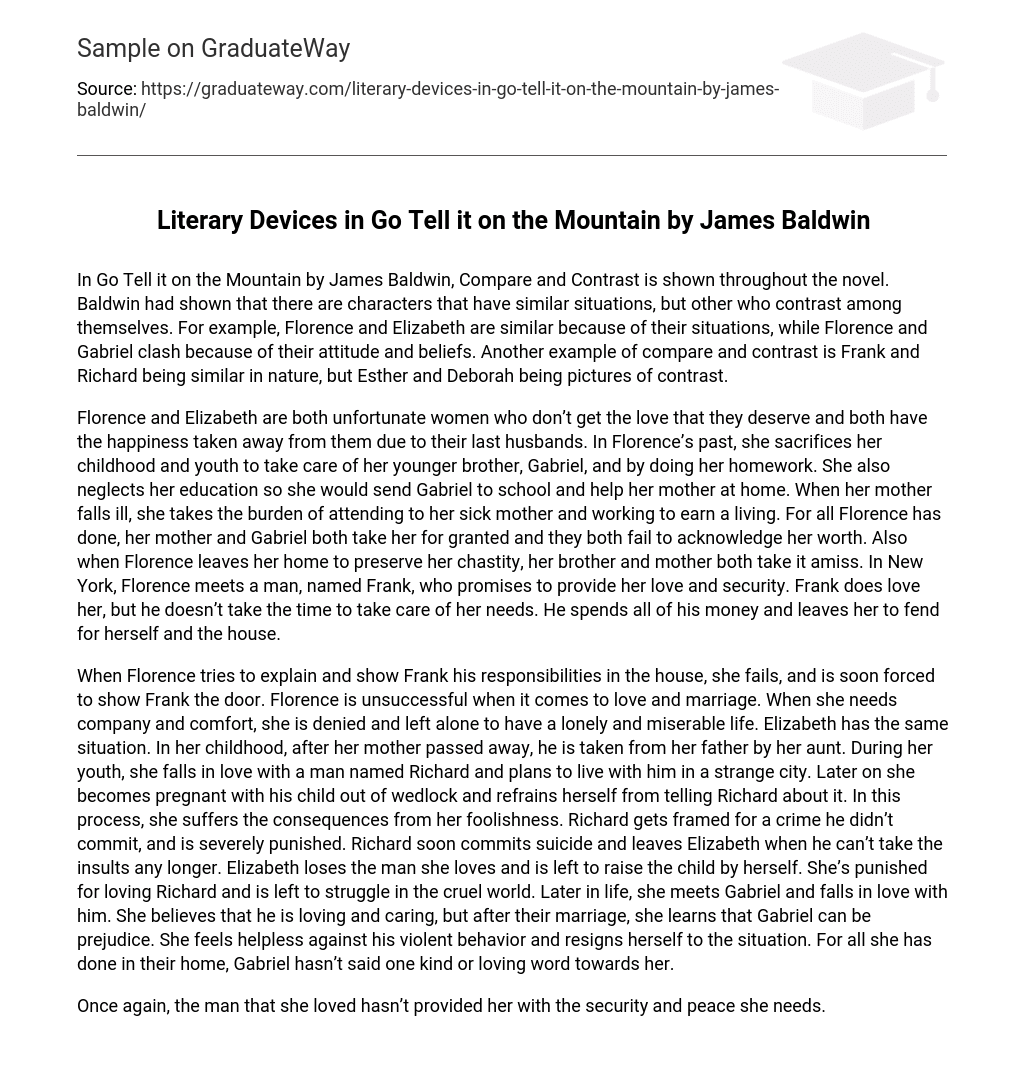In Go Tell it on the Mountain by James Baldwin, the novel explores the theme of Compare and Contrast. Baldwin illustrates characters who experience similar situations, while others contrast with one another. For instance, Florence and Elizabeth share similarities in their circumstances, while Florence and Gabriel clash due to their differing attitudes and beliefs. Additionally, Frank and Richard exhibit similarities in nature, whereas Esther and Deborah vividly contrast with each other.
Florence and Elizabeth are two unlucky women who do not receive the love and appreciation they deserve. Both of them have had their happiness stolen by their last husbands. In Florence’s past, she sacrifices her own childhood and youth to take care of her younger brother, Gabriel, and complete her household chores. She even neglects her education in order to send Gabriel to school and help her mother with domestic responsibilities. When her mother falls ill, Florence takes on the burden of caring for her sick mother while also working to support herself and her family financially. Despite all that Florence has done, both her mother and Gabriel fail to recognize and appreciate her worth. Furthermore, when Florence leaves her home to protect her virtue, both her brother and mother misunderstand her intentions. In New York, Florence meets a man named Frank who promises to love and provide security for her. Although Frank does love Florence, he neglects to meet her emotional and material needs. He recklessly spends all of his money, leaving Florence to fend for herself and maintain the household alone.
Both Florence and Elizabeth face difficulties in their lives. Florence fails to communicate Frank his responsibilities in the house, resulting in her having to kick him out. This leads to a lonely and miserable life for Florence as she is unsuccessful in love and marriage, denied company and comfort. Similarly, Elizabeth’s challenges begin when her aunt takes her away from her father after her mother’s death during childhood. In youth, she falls in love with Richard and plans to live with him in a new city but becomes pregnant without informing him. These actions result in severe consequences as Richard is wrongfully accused of a crime and faces punishment, ultimately leading him to commit suicide. Consequently, Elizabeth is left alone to raise their child while being punished for her love for Richard amidst struggles within a cruel world. Later on, she marries Gabriel believing he is loving and caring but soon discovers his prejudice nature towards her along with violent behavior; despite all efforts at home Gabriel has never spoken kind or loving words towards Elizabeth.
Once again, the man she loves has failed to provide her with the security and peace she desires. Like Florence, she feels unlucky and betrayed by life. Both Frank and Richard are weak characters who succumb to the temptations of life. They are insecure African Americans who feel threatened by the power of white people and quickly find a way to escape their fears. Although Frank loves Florence and promises to respect and protect her, he forgets his responsibilities when money becomes involved. He apologizes but repeats his mistake, failing to provide security and harmony in their marriage. When Florence, disgusted with him, tells him to leave the house, instead of trying to improve himself and make amends, he leaves and moves in with another woman.





